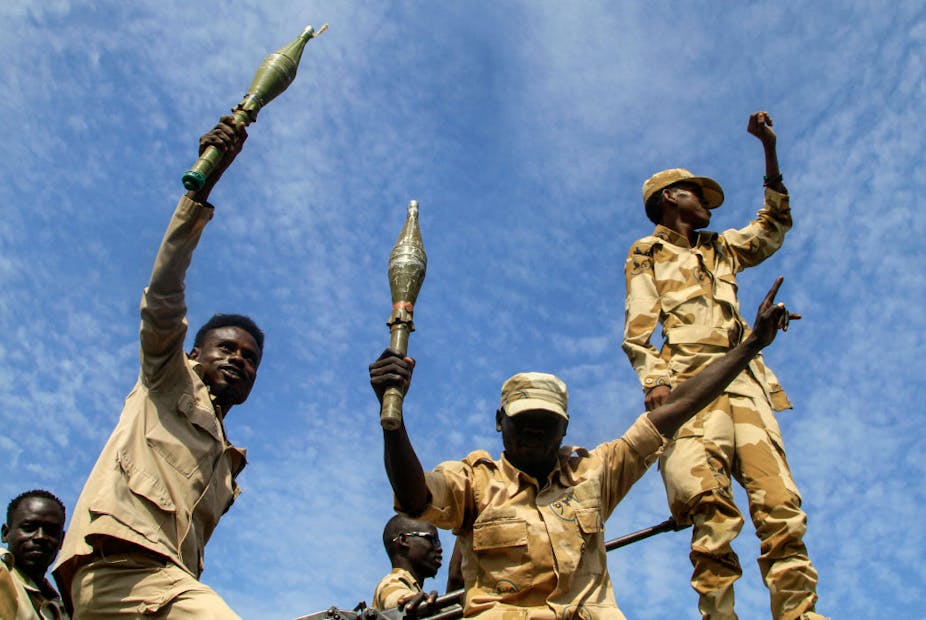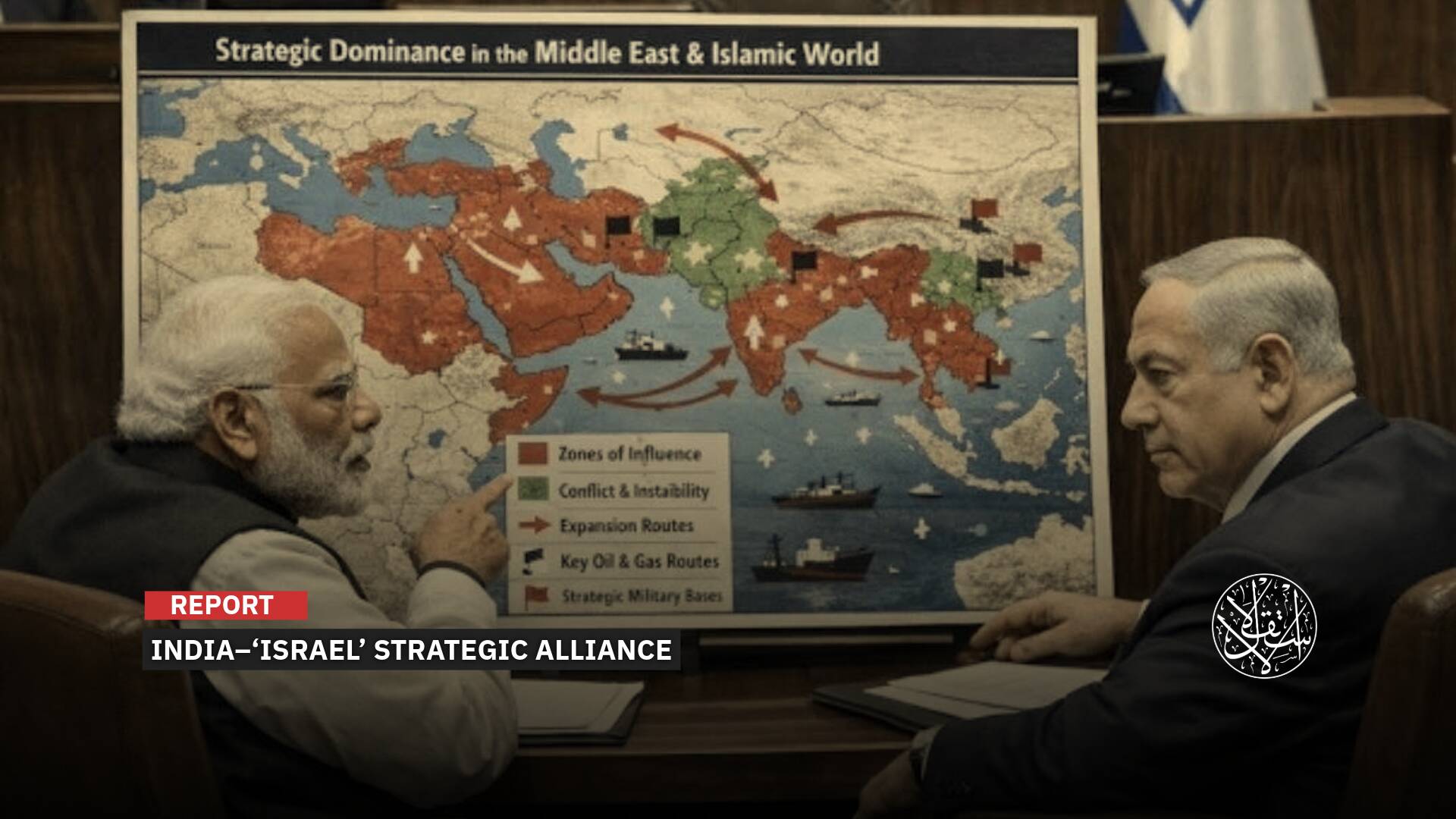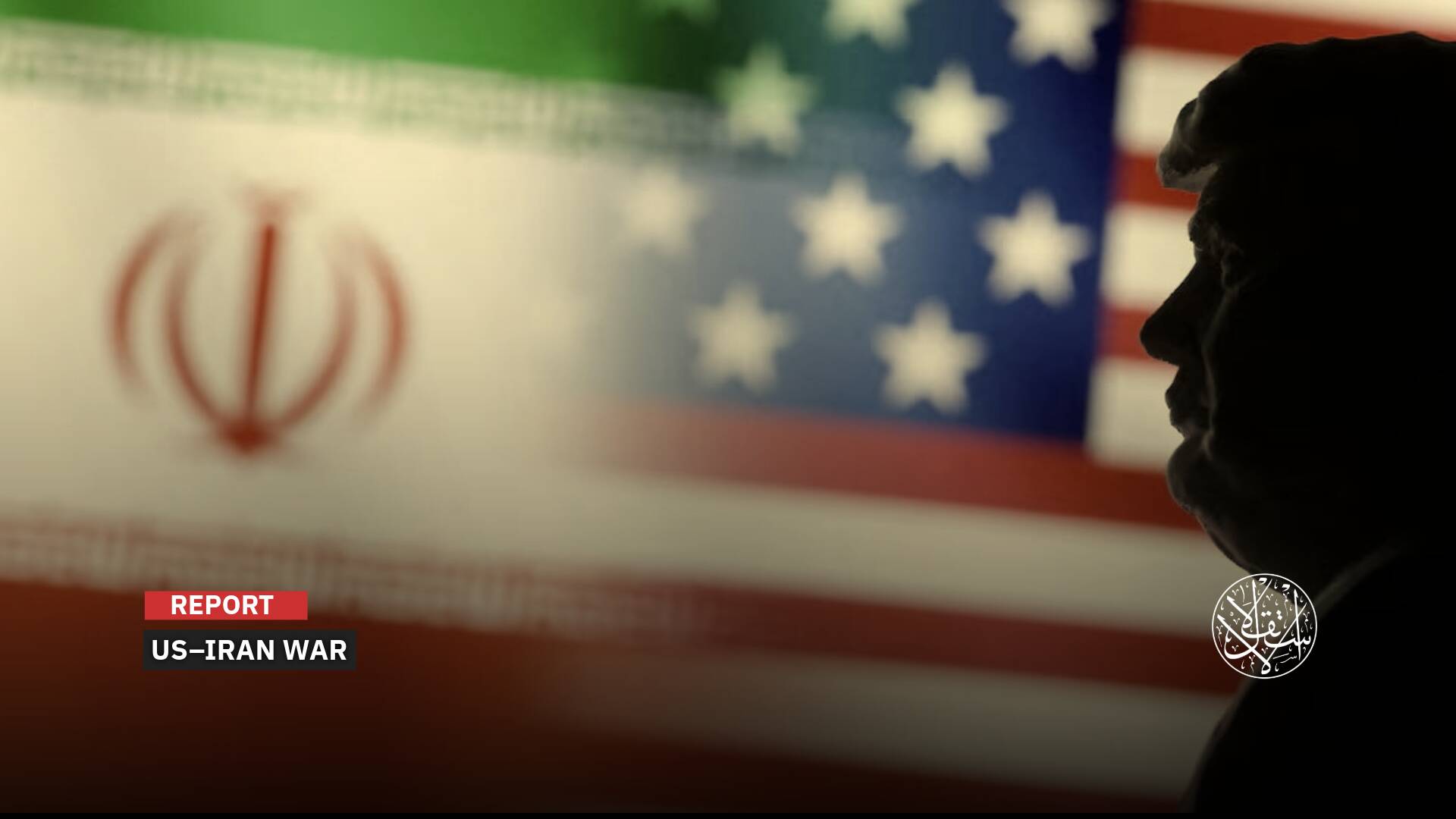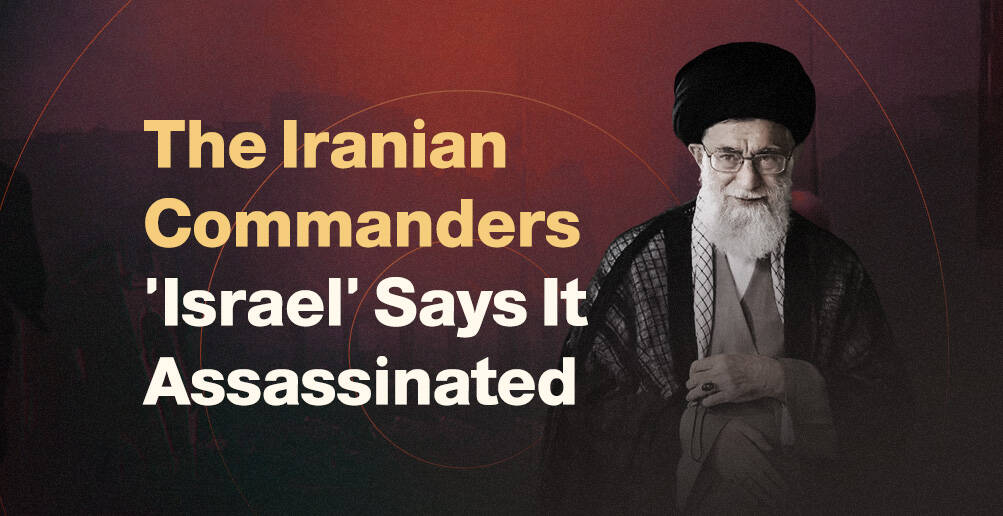After Targeting RSF Militia, Is Egypt Taking a Stand in Sudan's Conflict?

Hemedti's speech was disjointed and angry, reflecting his fear of defeat.
Despite it not being the first time that Sudanese paramilitary leader Mohamed Hamdan Dagalo (commonly known as Hemedti) has accused the Egyptian government of favoring the official Sudanese Armed Forces (SAF) in the ongoing conflict that erupted in April 2023, his recent allegations carry significant implications and meanings.
The RSF militia leader, who recently acknowledged the defeat of his militia in the strategically important Jebel Moya in Sudan's Sennar state amid advances by the army and retreats on various battlefronts, blamed the Egyptian air force for his militia’s losses, further spreading accusations to several international parties allegedly involved in the war.
Hemedti accused the Egyptian military of being the reason behind the successes achieved by the SAF against his forces in recent weeks, particularly following airstrikes in Sennar that targeted his Rapid Support Forces (RSF) militia at Jebel Moya.
While many Sudanese and Egyptians celebrated reports of Egypt's intervention and airstrikes against Hemedti's militia—heralded as a formal Egyptian engagement in the war for the first time—the response from Cairo's foreign ministry disappointed these hopes.
They denied Hemedti's accusations while dismissively referring to his forces as a "militia," a clear slight against him.
Hemedti’s statements, which included details about the strikes and the aircraft used, coupled with Cairo's denial, have raised a host of questions: Is the Egyptian regime officially intervening in the conflict to tip the scales? What has prompted this shift after a prolonged period of hesitation? And if it does not intervene, what role does it play in the war?

Hemedti’s Speech
In a detailed and aggressively toned address, Sudanese paramilitary leader Mohamed Hamdan Dagalo (Hemedti) explicitly outlined Egypt's role in striking his militia, even issuing implicit threats.
However, his speech appeared disjointed, prompting experts in artificial intelligence to analyze it and suggest significant editing, hinting at the possibility that someone else authored it.
The Middle East Eye posted on X, on October 10, 2024, that Hemedti asserted that Egyptian forces had conducted airstrikes against his troops, claiming these assaults forced his fighters to retreat from the strategic Jebel Moya area.
"His forces in Jebel Moya were attacked and killed by Egyptian aircraft," expressing frustration over the prolonged silence regarding Egypt's participation in the conflict, hoping it would withdraw but noting an escalation instead.
In a recorded video, Hemedti warned, “We have remained silent for a long time about Egyptian air involvement in the war, hoping they would withdraw, but now they have escalated.”
Addressing his militia, Hemedti claimed his troops were defeated "due to overwhelming force and modern aircraft like Sukhoi and MiG-29," referring to Egyptian planes, which his forces had previously managed to destroy, including two at Khartoum Airport at the onset of hostilities.
Following Hemedti's address, the RSF militia issued a stern warning to Egypt, alleging that Egyptian aircraft had committed a massacre against their troops, resulting in nearly 4,000 of their fighters killed at the Karrari camp.
For the first time, they revealed the presence of Egyptian prisoners in their custody, asserting these individuals had fought alongside the SAF in the current conflict, characterizing them as mercenaries and stating they are now captives of their forces.
During the outbreak of his conflict with the SAF in 2023, Hemedti’s militia detained several Egyptian soldiers at Merowe Military Airport, who were there to participate in joint military exercises with Sudan.
These soldiers were later returned to Cairo after enduring humiliation.
Hemedti also accused the Egyptian regime of training the SAF and supplying it with Chinese-made K-8 drones, along with implicating around seven unnamed countries in providing direct or indirect support to the Sudanese military.
In what appeared to be a shift from his previous peace-promoting rhetoric, Hemedti vowed to mobilize one million soldiers to confront the SAF.
“This war will not end in one, two, three, or even four years,” he declared, “Some talk about one million soldiers, and we will soon reach that number.”
Hemedti's accusations against Egypt mark a second instance of such claims.
In a May 2024 interview with the Saudi channel Ashraq, he alleged that both Egyptian and foreign aircraft targeted his forces in the Karri locality of Omdurman.
Numerous accusations have surfaced from both Egyptians and Sudanese, suggesting that Abu Dhabi is behind Hemedti's recent statements, particularly as it is believed to have scripted the threats he directed at Egypt.
Analysts have scrutinized his address, reinforcing the notion of the UAE's involvement in shaping his rhetoric.
Message from the Shadows
Dr. Hossam Fahmy, a professor of Technology and Artificial Intelligence at Boston University, noted the repetition of certain phrases and the dissonance between Hemedti's lower body movements and his facial expressions.
He suggested that the address was recorded twice, with the lower body captured separately and the facial movements edited to match, alongside a selection of phrases that Hemedti frequently repeats, resulting in over 25 edits of the speech.
Dr. Fahmy concluded that this is not Hemedti's genuine address, but rather a "message" crafted by a state backing him, alluding to the UAE.
He urged the Egyptian government to disregard Hemedti's rhetoric and instead engage directly with those "behind the message," implying the need to negotiate with the known state supporting Hemedti's beleaguered forces.
Suliman Baldo, head of the Sudanese Observatory for Transparency and Policies, remarked that Hemedti’s address was “unusually long, marked by excessive repetition and a lack of coherence.”
Speaking to Sudan's Radio Dabanga, Baldo noted that the assault on various fronts indicates disorder and a lack of focus, hinting at the possibility of another party orchestrating the speech.
Military experts speaking to Radio Dabanga on October 8, 2024, emphasized that the Jebel Moya region is a critical strategic area, with control over it allowing for easy domination of the rest of Sennar State.
By securing Jebel Moya, the army has successfully cut supply lines to the Rapid Support Forces in surrounding towns, including Singa, Dinder, and Al-Suki, while also controlling the vital land route linking the cities of Rabak in White Nile State and Senar, the largest city in Sennar State.
On the same day, the United States imposed sanctions on Hamdan Daglo Musa, Hemedti's brother, for his role in supplying arms that have exacerbated the conflict and contributed to atrocities against civilians.

Did Egypt Strike Back?
Cairo has firmly denied Hemedti's claims regarding the involvement of Egyptian warplanes in the ongoing conflict in Sudan.
Notably, the Egyptian Foreign Ministry's rejection labeled him a "militia leader," urging the international community to "verify the accuracy" of Hemedti's assertions.
A senior Sudanese military source also dismissed Hemedti's allegations, stating that the defeat of the RSF militia in Jabal Muya was due to the actions of Sudanese air force pilots.
Sudanese journalist and analyst Walid el-Tayeb denied any involvement of Egyptian aircraft in targeting Hemedti's militia, emphasizing Egypt's stance in the Sudanese war as primarily one of "political support."
El-Tayeb explained to Al-Estiklal that Hemedti's accusations against Egypt are longstanding, dating back to before the conflict escalated.
Hemedti's justification for besieging Meroe Air Base just three days before the outbreak of war was to neutralize a unit of the Egyptian Air Force engaged in routine joint training with the Sudanese Air Force, a traditional collaboration between the two militaries.
The Egyptian unit acted professionally and refrained from exercising its right to self-defense to avoid entanglement in the Sudanese conflict.
El-Tayeb highlighted that Egypt has continued to recognize the legitimacy of the current Sudanese government and has cooperated with it without resorting to hostile rhetoric, unlike neighboring Ethiopia, Kenya, and Chad, which is why Hemedti appears aggrieved with Egypt.
Meanwhile, Maj. Gen. Mohamed Abdel Wahed, told Sudan Plus that this is not the first time Hemedti has accused Egypt of siding with the SAF against him.
Abdel Wahed attributed Hemedti's accusations to his deteriorating position in the war and the defeat of his forces in Khartoum, suggesting that these claims were an attempt to divert attention from the atrocities committed by his troops against Sudanese civilians.
Equally important, Abdel Wahed believes Hemedti's address seemed erratic and angry, laden with accusations against Egypt and other nations for allegedly combating his forces alongside the Sudan military.
Egyptian activists mocked Hemedti's accusations that the Egyptian military was supporting the Sudanese military against his militias, quipping, “If President Abdel Fattah el-Sisi's army hasn't even moved to protect Egypt's borders at the Philadelphia axis, how could it possibly intervene militarily in Sudan?”
They pointed out that the Egyptian military had not responded to former Israeli intelligence chief Amos Yadlin, who claimed that the Egyptian army operates on orders from “Israel”, and thus how can it engage in combat in Sudan?
Egyptians took to social media to press Hemedti with the question, “On what basis do you claim that the aircraft hitting your troops were from Egypt?”
American-based journalist Nezam Mahdawi raised a pertinent question: “How can Hemedti accuse the Egyptian air force of striking his forces while being funded and armed by the UAE, which effectively governs Sisi’s Egypt?”
Hemedti's accusations against Egypt coincided with the SAF's release of a video showcasing evidence of the UAE's involvement in supporting the rebellious Rapid Support Forces in their campaign against the Sudanese people.
What Lies Behind the Accusations?
Why has Hemedti accused Egypt of bombing his militias? Is this an attempt to find a scapegoat for their defeats in Jebel Moya and Khartoum? Did Sisi indeed target the Rapid Support Forces, knowing they are "the UAE's instrument" and funded by Mohamed bin Zayed?
If it is true that the Egyptian military struck Hemedti's forces, could this be interpreted as a shift in Cairo's stance, marking direct intervention in the conflict? Or is it merely retaliation for the detention and assault of Egyptian officers and soldiers by Hemedti's militia at Meroe Air Base in April 2023, coinciding with the onset of the Sudanese war?
Moreover, if Egypt did support the SAF with airstrikes against the RSF militia, could this be linked to broader Egyptian maneuvers to contain Ethiopia?
In recent developments, Egypt has begun deploying troops and military support to Somalia while strengthening alliances with Eritrea, Ethiopia's staunch adversary.
On October 10, 2024, Sisi visited Eritrea, meeting with President Isaias Afwerki and Somali President Hassan Sheikh Mohamud, culminating in a joint statement.
The communique from the trilateral summit revealed the emergence of a potential military and political regional alliance aimed at countering Ethiopian ambitions in the region, while also addressing the ongoing situation in Sudan.
A former Egyptian military expert explained to Al-Estiklal that since the onset of the war in Sudan, Hemedti has made concerted efforts to neutralize Egypt's role.
This was exemplified by the abduction of Egyptian officers and soldiers at Meroe Air Base, aimed at humiliating them on the ground.
However, Cairo has opted to support the official Sudan Armed Forces (SAF) and its institutions, viewing Sudan's stability as a vital national security interest.
This support, particularly for the military, has been carried out discreetly, fearing that if the army fails to end the conflict decisively, Hemedti's victory could jeopardize Egypt’s objectives.
The expert noted that Egypt aims to contain Ethiopia through Sudan, particularly given Ethiopia’s antagonism towards Cairo and its efforts to limit Egypt’s water supply via the Grand Ethiopian Renaissance Dam.
There have been signs of Egypt's intent to enhance the combat readiness of the Sudanese army by providing technical support, training, and military assistance.
In retaliation, the Rapid Support Forces have targeted Merowe Air Base, where Egyptian troops were stationed, deliberately setting fire to aircraft and seeking to humiliate Egyptian soldiers.
This strategy appears aimed at sidelining Cairo from the Sudanese theater, in collaboration with Ethiopia and the UAE—an assertion underscored by Hemedti’s recent accusations against Egypt.
As reported by Middle East Eye on October 10, 2024, geopolitical analyst Ammar Fayed confirmed that "Hemeti's statement generally indicates a recent shift in the balance of power, which explains Hemeti's concern that this might be the result of direct foreign intervention in support of the army."
Functional Mini-State
Numerous reports have surfaced throughout the conflict regarding Egypt's military support for the SAF, including a report from Middle East Eye on May 3, 2023.
The site quoted an "Egyptian military source" confirming that Egyptian pilots had been flying Sudanese warplanes during the conflict, conducting airstrikes against the Rapid Support Forces on behalf of the SAF, a claim denied by a spokesperson close to the Sudanese military.
However, analyst Ammar Fayed expressed that Egypt has reduced its direct intervention in Sudan in recent months, likely due to uncertainty over whether the army can decisively end the conflict.
Fayed told Middle East Eye, "Cairo might be unable to decisively intervene to secure a victory for the army, but at the very least, it seems to be enforcing certain red lines to prevent RSF advancements."
These accusations came a day after the United States imposed sanctions on Hemedti's younger brother, alleging his involvement in arms procurement for paramilitary forces, further prolonging the war in Sudan.
Sudanese thinker Taj Alsser Osman suggested that Hemedti's allegations against Egypt could be an attempt to rationalize his forces' defeat in Jebel Moya, dismissing the idea that "Sisi would bomb the UAE's tools."
In a post on X on October 10, he remarked, "I wouldn’t be surprised if Mohammed bin Zayed sends mercenaries to target Egypt under this pretext, as he leads a functional mini-state whose conspiracies know no bounds—even against its apparent closest allies."
"Hemedti is searching for justification for the defeat of his forces in Jebel Moya, and has accused the Egyptian army of airstrikes because he does not want to acknowledge the rising strength and morale of the Sudanese army, which has finally garnered popular support," as pointed out by Osman
Official accusations have been levied by both the Sudanese military and the Foreign Ministry against the UAE for its alleged support of Hemedti's militia.
Yasser al-Atta, the Assistant Commander-in-Chief of the Sudan Armed Forces, launched a scathing attack on the UAE, accusing its leader, Mohammed bin Zayed, of seeking to destroy Sudan, labeling the nation a "state of evil”, saying that “the UAE was fuelling the conflict by supplying military aid to the Rapid Support Forces (RSF) through Chad and the Central African Republic.”
In a conversation, Abdel Fattah al-Burhan explicitly informed bin Zayed that “Abu Dhabi is accused by the Sudanese, with extensive evidence and testimonies proving the UAE’s support for the rebels and those who kill and destroy their country and displace them.”
A report from Foreign Affairs on July 31, 2024, highlighted what it termed the "UAE's secret war in Sudan," detailing the UAE's role in supporting the Rapid Support Forces with various types of weaponry during the Sudanese civil war.
Aswan High Dam Threat
In the wake of Hemedti's implicit threats to retaliate against Egypt, pro-Rapid Support Forces journalist Abdel Moneim al-Rabee made his own veiled threat, suggesting potential action against the High Dam, albeit without specifying how. His remarks hinted at an Ethiopian agenda behind the threat.
Al-Rabee stated, "The High Dam could become a matter for us... you're talking about a war where all options are on the table," prompting Sudanese citizens to warn Egypt to take this threat seriously.
They described Hemedti's militia as an "undisciplined terrorist group that knows no laws and only understands the language of weaponry."
In a statement on X, Hemedti's advisor, Elbasha Tbaeq, declared that “Egypt has revealed its true face and its blatant intervention in Sudan. What Egypt has done in terms of destroying infrastructure—factories, bridges, and civil institutions—reflects its historical stance towards Sudan,”
Tbaeq accuses Egypt of “occupying Halayeb, Shalateen, and Um Ramad, seeking to turn Sudan into a backyard under Egyptian sovereignty to exploit its natural resources yet it still wants Sudan to be a backyard under Egyptian sovereignty to benefit from its raw resources to support its economy.”
Suliman Baldo, head of the Sudanese Observatory for Transparency and Policy, warned that Hemedti's speech signals a shift towards a new phase of escalation and military confrontation following recent defeats.
In an interview with Radio Dabanga on October 10, 2024, Baldo noted that the address lacked any mention of negotiation or peaceful solutions, instead reflecting a clear mobilization tone as Hemedti urged his troops to prepare for what he termed "Plan B," implying further escalation on all fronts.
Baldo predicted that the war, now nearing its eighteenth month, is unlikely to end soon, as no side can achieve a decisive military victory due to the involvement of external actors supporting both factions.
He emphasized that there are indications of direct Egyptian support for the SAF, along with clear evidence of Iranian backing and Russian commitments, contrasted with Emirati assistance to the Rapid Support Forces in terms of weapons and technical supplies.
Sources
- Sudan paramilitary leader Hemedti accuses Egypt of attacking troops in battle for Khartoum
- Hemedti accuses Egypt of launching airstrikes on Rapid Support Forces, while Cairo denies the claims [Arabic]
- Suliman Baldo: Hemedti's rhetoric warns of a new phase of escalation [Arabic]
- Sudan is burning and foreign powers are benefiting – what’s in it for the UAE













